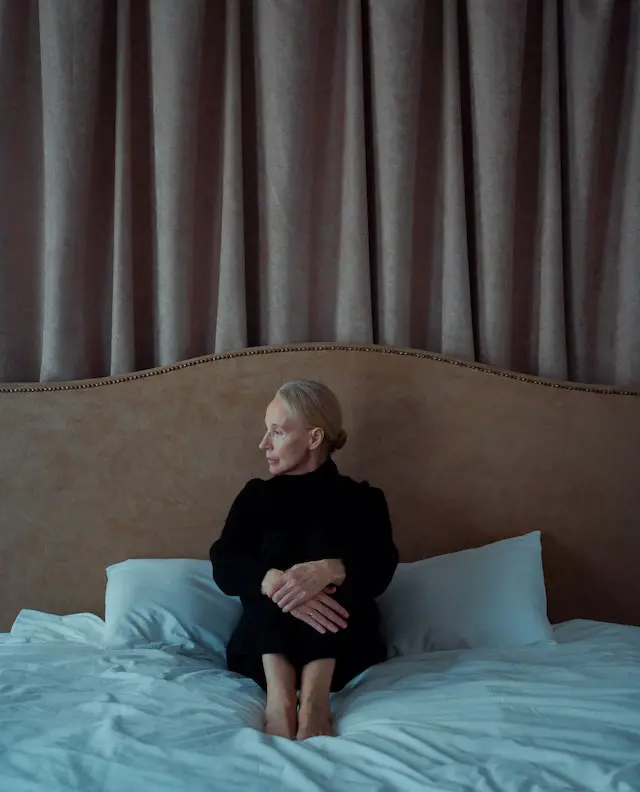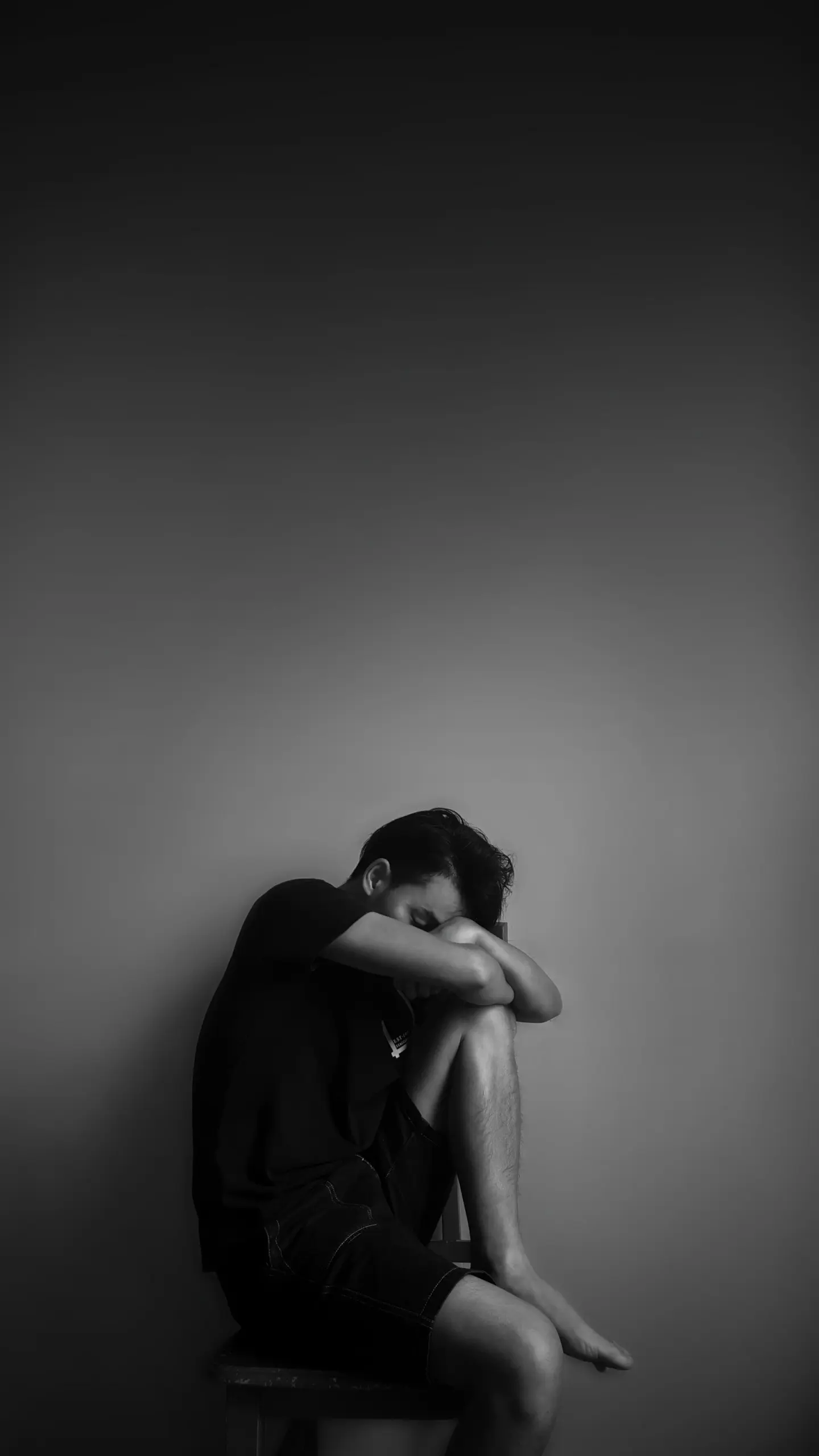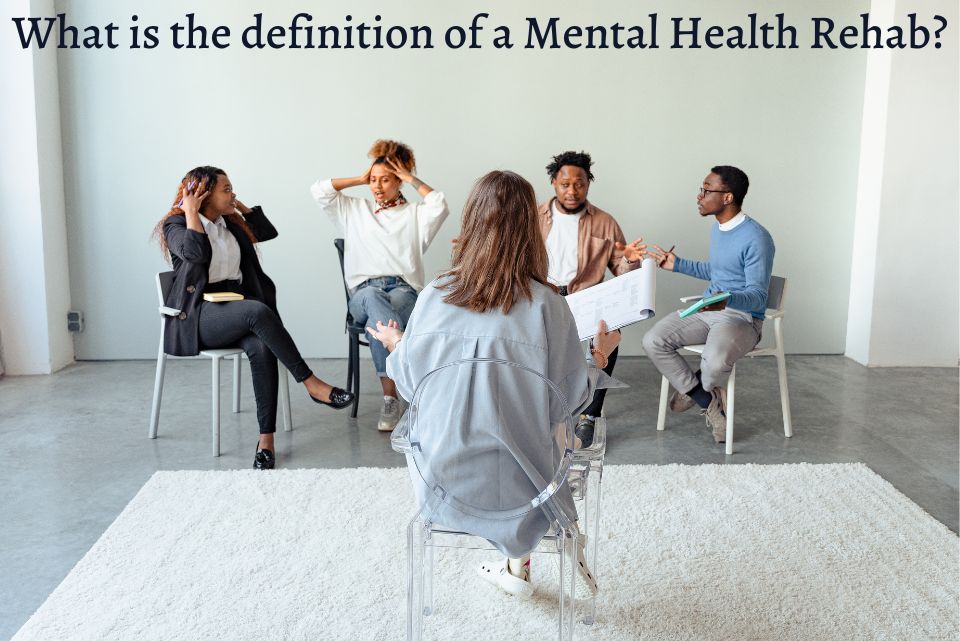
A rehab center is a facility, private or public, that provides training and therapy for rehabilitation. It is an intensive, supervised program designed specifically to provide the necessary tools for a healthy life.
People with addictions, depression, and other mental health disorders benefit from programs in rehab centers because they offer help and support 24/7. Rehab centers also enable patients to develop coping skills to handle negative situations and stimuli in a healthier manner.
Depression clinics provide both short- and long-term care, depending on the specific needs of each patient. A team of professionals is involved in the treatment process. Psychiatrists, therapists, counselors, primary care physicians, and other healthcare professionals work with patients on their recovery.
Rehab centers use a wide range of approaches to treat patients. The most common approaches are cognitive-behavioral therapy (CBT), medications, and self-help strategies. In most cases, a combination of different approaches works best.

Treatment methods a rehab center implements for depression include psychiatric hospitalization, inpatient or residential treatment, outpatient mental health treatment, dual diagnosis treatment, medication, psychotherapy, support groups, and complementary and alternative treatments.
Psychiatric hospitalization is a method whose main goal is to provide stabilization, medication, close monitoring, and other necessary emergency care. This method is suitable for patients with severe symptoms, especially suicidal thoughts and tendencies.
Inpatient or residential treatment is a method where patients receive constant support and supervision for a specific period of time, e.g., 30, 60, or 90 days. On the other hand, the outpatient treatment method works for patients with mild to moderate symptoms and a solid support system at home.
The dual diagnosis method is necessary for people with co-occurring disorders such as depression and addiction or other mental health conditions. Psychotherapy is the most common method for the treatment of depression, and it is included in both inpatient and outpatient care. This method is based on the fact that changing negative thinking patterns into positive alternatives or they focus on increasing motivation to get better.
Medication use is also a common method in depression treatment. It focuses on drugs that change levels of certain neurotransmitters such as serotonin and thereby decrease the intensity of depressive symptoms. However, medications shouldn’t be the main component of depression treatment. Instead, they act as an adjunct to therapy.
Support groups in the treatment of mental health disorders are a common method in rehab centers. They work as a group therapy so patients who are in the same situation can share their experiences and help one another.
Complementary and alternative methods in the treatment of depression include yoga, meditation, and other relaxation techniques.

Approaches of rehab clinics for depression treatment usually include cognitive-behavioral therapy, medications, social skills training, psychodynamic therapy, and behavioral activation, just to name a few.
Behavioral therapies are among the most popular approaches in the treatment of depression. The most common approach here is cognitive-behavioral therapy. This type of psychotherapy is effective in the treatment of depression, anxiety, addiction, and other mental health problems. In fact, a meta-analysis from the Psychiatry Research confirmed CBT was superior to medications in the management of treatment-resistant depression.
Social skills training is also an effective approach for patients with depression. The journal Behavior Modification published a review of evidence that confirmed social skills training was at least as effective as some antidepressants.
Approaches to depression treatment rely greatly on different theories surrounding this common mental health condition. One of the most popular theories is the behaviorist theory which suggests depression results from a person’s interaction with their environment. On the other hand, cognitive theory believes depression occurs due to systematic negative bias in the thinking process. That’s what makes cognitive-behavioral therapy so important; it focuses on resolving problems suggested in both theories.

In order to understand whether a rehab clinic is good for depression treatment, it’s necessary to consider the following:


In order to check the medical experts of a depression rehab center, it is necessary to do a little research and make sure they meet the following criteria:
The best way to check the medical experts of a depression rehab center is to contact the center and ask for information about the professionals in their team.

A person can understand whether they need depression treatment in a rehab center if their symptoms are severe. If other ways to manage depression are unsuccessful, a rehab center could help.
Additionally, if a person believes they’re at risk of hurting themselves or others, that’s a telltale sign they need depression treatment in a rehab center. Other signs include lack of support system, inability to function in daily life due to depression, inability to function at work due to work-related causes of depression, and engaging in risky behaviors due to depression. In this case, risky behaviors refer to substance use or engaging in other addictive practices hoping to neutralize depressive symptoms.

Mental health rehab is a type of rehabilitation center that focuses primarily on helping patients recover from difficulties caused by long-term or unmanaged depression or other mental health conditions. In this facility, patients receive 24/7 care and support in a structured manner.
Most mental health rehabs are huge buildings with well-equipped rooms for patients and communal areas to improve their socializing skills. Patients also have regular exercise, art classes, equine therapy, and many other services and amenities that promote relaxation and aid in depression treatment.
Since mental health rehab focuses on helping patients overcome depression or other conditions, they provide regular therapy sessions. Psychiatrists, therapists, counselors, primary care physicians, and other health professionals are involved in the entire process. That way, patients receive much-needed care.
Each rehab center in the U.S. should be accredited by a minimum of one agency and needs to have a remark by Council on Rehabilitation Education. What these agencies do is that they ensure rehab centers provide and adhere to the basic standards of care.
Another governing agency for accreditation of rehab centers is the Joint Commission. Speaking of accreditation or approval of mental health rehab centers, one of the most recognizable agencies is The Commission on Accreditation of Rehabilitation Facilities.
Various regulations govern patient protection and coordinated care through CCBHC (certified community behavioral health clinics), according to the Substance Abuse and Mental Health Services Administration (SAMHSA).


Mental health rehab and depression treatment rehab are not the same things. Some rehabs treat only depression and addictions of many sources, while others treat only mental health issues like depression, and schizophrenia, among others. While they may have slight differences, their goals are essentially the same – to help patients overcome their struggles and live a healthy and happy life.
Rehab for depression costs vary from one clinic to another. The average costs of rehab for anxiety and depression or other mental health conditions range from $15,000 to $60,000 for 30 days in inpatient rehab. Some public and government-funded rehab centers may cost less.
The costs of mental health treatment are on the rise. And so is the number of people who need treatment for mental health problems, especially since the COVID-19 has started. In fact, compared to 2020, when 37% of psychologists reported receiving more referrals, the percentage jumped to 62% in 2021. According to the American Psychological Association, seven in 10 psychologists reported their waitlist has become bigger since the onset of the pandemic.
In 2020, the costs of inpatient mental health treatment were between $10,000 and $30,000 or higher in some locations and luxury rehabs.
The PwC predicted the rise of medical costs over the years. In 2022, the predicted medical costs are at 6.5%, whereas that percentage for 2020 was 6.0%.
The average cost of psychotherapy is $100 to $200 per session, depending on the state. In 2020, the average cost of therapy was $75 to $150 per session.
The cost factors for depression rehab centers are listed below.
Generally speaking, the more the rehab clinic offers, the higher the price of the treatment. That explains why treatments for mental health conditions in luxury rehabs can go anywhere from $300,000 to $800,000 per month.

Signs for going into a depression rehab center include intense symptoms that a person can’t manage without professional help. Depression is more than feeling sad; it is a complicated mental health problem.
The most common symptoms of depression are feelings of worthlessness, loss of interest in hobbies and other activities, social isolation, angry outbursts, sleep disturbances, lack of energy, appetite changes, anxiety, slowed thinking, unexplained physical problems, and frequent or recurrent thoughts of death, Mayo Clinic explains.
Not every person with depression needs to get help from a depression rehab clinic. The most prominent signs a patient can benefit from a depression rehab center include substance use, suicidal thoughts and ideation, extreme lack of motivation to leave home and engage with others, problems with relationships due to depression, and engaging in behaviors such as gambling overeating, and shopping.
A good sign a person needs rehab for depression is when other treatment options don’t work. This is primarily the case for persons who are diagnosed with depression and adhering to the recommended treatment protocol. When the standard measures yield no results, inpatient rehab for depression and anxiety could be helpful.

Depression symptoms that are signals for going to a mental health center are listed below.
Generally speaking, various symptoms serve as a telltale sign to seek depression treatment in the mental health center. Some of them are not listed above because they vary from one person to another. The abovementioned symptoms are the most common reasons to seek more intensive programs in depression rehabs. Others will be discussed further in this post, as well.

Yes, anxiety is a reason to go to a mental health clinic. However, it’s important to clarify that not every person with anxiety needs treatment from a mental health center.
According to the Anxiety and Depression Association of America, anxiety is the most common mental health illness in the United States, affecting over 40 million adults or 18.1% of the U.S. population each year. While anxiety disorders are treatable, only 36.9% of people with this mental health condition receive treatment for their symptoms.
A person with anxiety should seek treatment at a mental health clinic if they have episodes of extreme panic attacks. Although every person has panic attacks from time to time, in some people, they are so severe they can’t function. Additionally, anxiety treatment at a mental health center is necessary when other symptoms are worsening, and standard treatment yields no positive changes. The clinic provides intensive therapy to help a patient learn how to cope with day-to-day stress and the reason for their anxiety.

Generally speaking, being messy is not a reason to get professional help from a mental health clinic. However, persons whose messiness goes to the extreme may need more intensive help. A good example is hoarding, but even then, a gradual approach is necessary to ensure the patient cooperates.
Yet another example is ADHD. People with ADHD tend to be messier than healthier persons due to symptoms such as lack of concentration, disorganization, and difficulty completing tasks. When ADHD is undiagnosed or managed inadequately, symptoms can worsen, meaning messiness can aggravate too. In extreme cases, people with ADHD may need treatment in the mental health center. That way, they can get help and support to improve thinking patterns and behaviors, develop resiliency, deal with trauma, and work on healthy coping skills.

Sleep deprivation is a reason to get treatment at a mental health clinic when it interferes with a person’s daytime activities and the ability to function. Depression and sleep deprivation often go hand in hand. Persistent sleep deprivation can actually worsen depression and its symptoms.
Not only is sleep disturbance comorbidity of depression, but it also acts as a prodromal symptom, i.e., it can predict the occurrence and outcome of depression, a paper from the Journal of Cellular and Molecular Medicine reports.
For that reason, if a person can’t function due to sleep deprivation, despite therapy and medications, sleep deprivation is a valid reason to go to the mental health clinic.

Addiction is one of the biggest signals for going to a mental health center. Depression, along with other mental health problems, is a major contributor to substance use disorders (SUDs). At the same time, addiction worsens depression and other mental health problems.
A study from the Journal of Substance Abuse Treatment found depression was strongly associated with concurrent alcohol use and drug use impairment. It was also linked to future alcohol use and impairment, earlier age of onset of an alcohol use disorder, and higher treatment participation.
Since the onset and severity of the addiction is strongly associated with a person’s mental health, persons with SUDs can greatly benefit from specialized treatments in mental health centers.
The most common reasons people go to mental health centers are:
Addiction and mental health struggles are closely intertwined. A proactive approach is necessary for the successful management of symptoms.
Besides SUDs, people may become addicted to certain risky behaviors that are also linked to their mental health. Good examples are eating disorders and sex addiction.
Mental health centers are beneficial for persons who don’t trust themselves due to suicidal thoughts or ideas of harming others
Sometimes, a hectic lifestyle causes a great deal of stress and may lead to a nervous breakdown. In this case, people go to a mental health center to prevent problems that could occur if their mental health problem is left unmanaged.
People oftentimes check themselves into a mental health center to get a different perspective and guidance from a professional when they’re feeling confused or fraught with emotions.
Most people come across situations that are too difficult to handle but have a major impact on their mental health. That’s why they go to a mental health center to develop the necessary skills to handle these situations in a healthier manner.
These episodes occur when thoughts and perceptions make it difficult to recognize what’s real or not. Warning signs of psychotic episodes include seeing or hearing things that aren’t there and paranoia.
Аlcohol addiction, also known as alcoholism or alcohol use disorder (AUD), is heavy and frequent use of alcohol even when it causes health problems and other complications. According to the National Institute on Alcohol Abuse and Alcoholism, nearly 15 million people in the United States aged 12 or older had AUD in 2019.
There is a serious link between alcohol addiction and depression. Some people drink to escape their depression, but they are not aware that they are making an even bigger problem. The biggest question here is whether serious drinking causes depression or vice versa. Medical experts say that both cases are possible.
Drinking will only make depression worse, primarily because alcohol makes antidepressants less effective. Alcohol abuse and depression are two problems that a person shouldn’t ignore. If a person thinks that they have a problem, they need to seek a well-structured treatment in a mental health center or alcohol addiction rehab.
Persons who have both depression and AUD need to see a rehab center that provides dual diagnosis treatment. Also, when it comes to alcohol and depression rehab, it’s important to clarify if alcoholism came as a consequence of depression or vice versa.
Drug addiction, or substance use disorder, is a compulsive need to take either prescription or illicit drugs regardless of the dangers they cause. In many cases, drug addiction starts from recreational use among people who experiment with different substances.
A person is more likely to develop drug addiction if they also have mental health disorders such as depression, PTSD, ADHD, and others. For people with depression, drugs often serve as an escape mechanism to cope with painful feelings. However, this can lead to tolerance and then dependence and addiction to drugs. At the same time, symptoms of depression can become worse.
Drug addiction treatment in a mental health center is a great way to tackle both problems since they’re intertwined with one another. If a person develops drug addiction due to depression, then they will benefit the most from a mental health rehab clinic.
Sex addiction, a highly destructive and dangerous problem, is a compulsive need for engagement or participation in sexual activity. A person with sex addiction is unable to control their sexual urges and may engage in risky activities in return.
Although it may not seem like it, sex addiction is strongly associated with depression. Oftentimes, depression poses the backdrop on which sexually addictive behavior is explained. For example, sex addiction is linked to cases of narcissistic depression, such as a lack of self-esteem, according to a paper from the Socioaffective Neuroscience and Psychology.
In the same way, a person with depression uses drugs or alcohol to cope with negative thoughts and other symptoms; they may also use sexual activity for that purpose. This creates a vicious cycle and a destructive pattern that only worsens depression.
Treatment at a mental health center helps persons with sex addiction resolve underlying triggers of their behavior. For that reason, a mental health clinic is a viable address for a person with both sex addiction and depression.
Tobacco addiction is a compulsive urge to continue using tobacco, mainly smoking cigarettes, despite the problems it causes. Tobacco is addictive due to the active chemical nicotine, which produces pleasing effects on the brain.
Unfortunately, tobacco addiction is one of the socially approved addictions, even though it causes various health problems ranging from cancer risk to impaired cardiovascular health.
Addiction to tobacco and depression are associated with one another. Depression is a prominent risk factor for tobacco dependence. For many men and women with depression, smoking cigarettes serves as a way to detach themselves from the negative emotions they’re feeling. That happens because nicotine stimulates the release of dopamine in the brain.
The neurotransmitter dopamine is involved in the brain’s reward system and positive emotions. For that reason, smoking induces somewhat pleasurable emotions, but they’re short-term. To experience the same effects, a person needs to smoke more. Continued use decreases the expression of dopamine receptors meaning a person needs to increase tobacco use, which leads to dependence and addiction.
For persons with depression and tobacco addiction, treatment at a mental health clinic offers programs that allow them to cope with their negative emotions in a healthier manner, without resorting to the use of cigarettes or other tobacco products.
Eating disorder is a term that refers to several psychological conditions indicated by unhealthy eating habits. Some people with eating disorders eat excessively, others don’t eat at all, and some persons eat and then purge (bulimia).
One of the most frequent symptoms of depression is a change in eating habits. Some men and women with depression use food to “numb” their negative emotions, while others may see food as a threat. Depression worsens bulimia, binge eating disorder, and other problems.
Treating depression helps persons with eating disorders improve their relationship with food. This allows them to develop healthy eating habits and avoid health complications. The mental health center is the right address for people with both eating disorders and depression because these conditions are strongly linked to one another. After all, eating is greatly affected by mental health.

The mental health center works through five important steps. The first step is patient evaluation, whereas the second step is diagnosis confirmation. The third step involves customizing a treatment plan for patient admission, and the fourth step is treatment evaluation and modification if necessary. The fifth step refers to patient discharge and instructions for outpatient treatment or regular therapy sessions to maintain their results.
In a nutshell, the mental health center has two main functions. The first function is to help with symptoms of depression, and the second function is to enable patients to identify triggers for their mental health struggles and adopt coping mechanisms to overcome them.
What the mental health center does is ensure the patient is equipped with skills and knowledge that help them have a normal, healthy life.

The best locations for rehab centers are listed below.

Necessities for starting a rehab center include a strong desire to help patients overcome their mental health problems and performing thorough research on the matter. Treating depression and other mental health disorders can be complex and requires a strong team of professionals, effective treatment methods, and more.
After thorough research, it is necessary to find a location and get licensed to conduct the business. All therapists and counselors also need to be licensed and certified. Starting a rehab also includes formulating a Pro-forma and a business plan, getting accredited, and finding and training team members. All this leads to the final moment – opening doors to patients.

Schedule free assessment
Concerned about yourself or your loved one?
Schedule a free assessment with our experts.